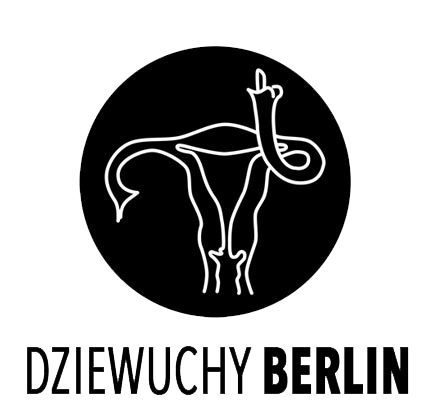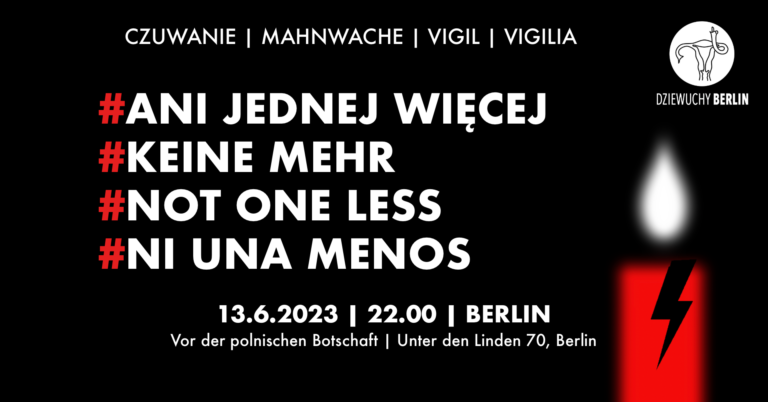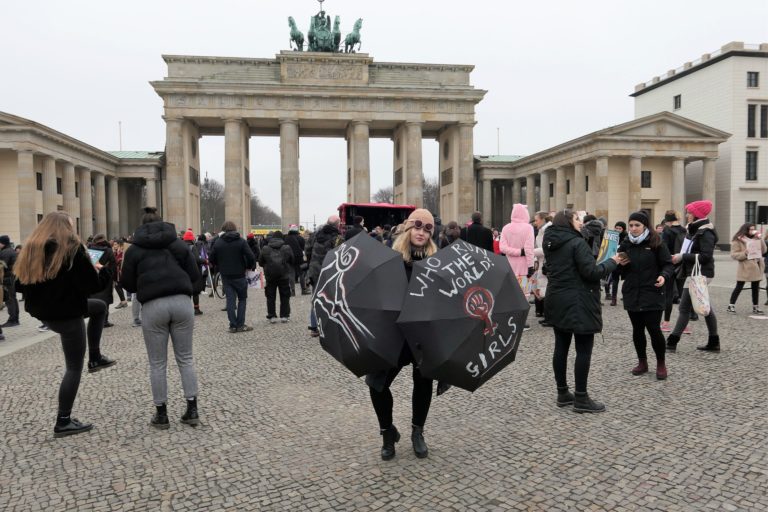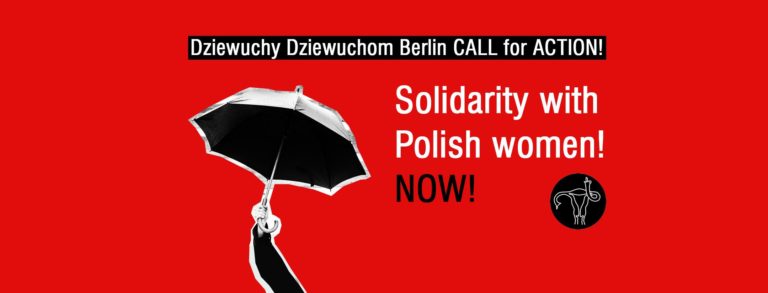Geschäftsstelle der Polonia in Berlin – Biuro Polonii w Berlinie zaprasza na wyjątkowe spotkanie na żywo z aktywistkami z dwóch niezwykle inspirujących organizacji: Dziewuchy Berlin […]
Tag: polish women
13.6.2023 Ani jednej więcej. Czuwanie. Keine mehr. Mahnwache.
(wersja polska poniżej, English below) 13.6.2023 | 22.00 | Vor dem Gebäude (Baustelle) der polnischen Botschaft / Przed gmachem (placem budowy) Ambasady Polskiej | […]
Szczecińska Manifa
W sobotę 11.03 byłyśmy w Szczecinie na Manifie, która po kilku latach wróciła do tego miasta. Hasłem przewodnim było: “Macierzyństwo to wybór”, które zawiera w […]
Women’s March Berlin – Personal View
Women’s March Berlin Text: Helena Kargol Last year we marched. Today we march again. Next year we will march again. I am so proud to […]
Solidarity with Polish women! NOW!
Solidarity with Polish women! NOW! CALL for ACTION! More than a year ago thousands of Polish women successfully took to the streets wearing black to […]




